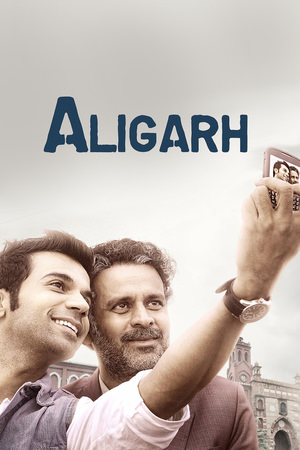Aligarh Reviews and Ratings

-
Two of India’s finest actors star in a new Bollywood film that puts the spotlight on homophobia in India, with its makers hoping to rekindle the debate on homosexuality and the right to privacy.
-
Overall, the honesty and the haunting reality of the story are what make Aligarh such a compelling watch. Even in the disheartening end, Aligarh gives you hope that maybe, someday our society will be on the verge of coming out for good.
-
There is also the questionable decision of showing the same incident four times in the film, which ends up crossing the line from ‘showing’ to ‘telling’. Like its protagonist, Aligarh is reluctant to assume an identity. It’s perfectly fine for an individual to make that choice; films, however, may then have to ride on the strength of adjectives that don’t necessarily tell you anything about its aesthetics.
-
Despite a sterling performance by Manoj Bajpayee and other positives,Aligarh ends up being an inconsistent biopic – on the one hand providing a beautiful portrait of reclusiveness, yet elsewhere doing a disservice to a man to whom this country owes an apology.
-
The turmoil of being homosexual and surviving in the Indian society is not something all of us go through. The struggle for acceptance and a disturbing end will move you. The performances are beyond brilliant and the film is crisp, not a minute longer. This is a movie not only for the arthouse cinema lovers but also for the rest. The movie shows a stark contrast between Siras’ and Deepu’s worlds, and you cannot help but feel strongly for the protagonist. The movie rises above just another social cause, and has layers of humanity to it. Do yourself a favor and don’t miss this one.
-
It’s inevitable that any cinematic rendering of gay lives in India will be seen and promoted as an “issue film”. This has certainly been the case with Aligarh, and I hope it sparks conversations about Section 377 in TV studios and living rooms. Yet, an even bigger victory for the film might lie in getting vaguely homophobic viewers to empathize with Siras, to understand his distaste for easy labels, to admit that even they sit in the dark with a drink and listen to old Hindi film songs.
-
The film is a unique step forward in reality cinema in that it uses actual names of people and places involved in the real incident. But then it still has to put a disclaimer at the start.
-
It is to Hansal Mehta and writer-editor Apurva Asrani’s credit that they resist the urge to mold him into a more recognizable filmi hero that we can root for. That restraint gives Aligarh its most memorable tender moments. As Siras says poetry is not in the words, it’s hidden behind the words, in silences, in pauses. The film lives up to that.
-
The movie is most powerful as a miniature about a man who prefers the comforts of the shadows rather than the glare of the spotlight. Mehta and Asrani put forth the message of the personal as political with as much restraint as is possible in a mainstream movie. Deepu draws the introverted professor out of his self-imposed prison and seems to be able to restore some of his trampled-upon dignity. There are some benefits to being forcibly outed. Siras recites his poetry at a gathering, shyly accepts the applause, and, for the first time in days, feels better about himself. It’s one of the movie’s most affecting scenes and Bajpayee’s finest moment.

















